An Overview Of Note-Taking Styles
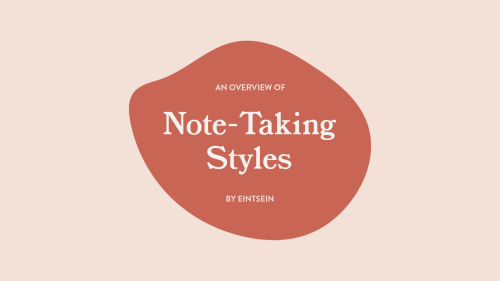

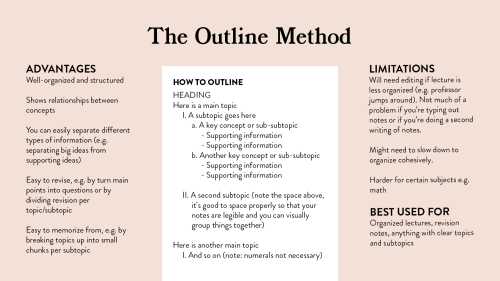
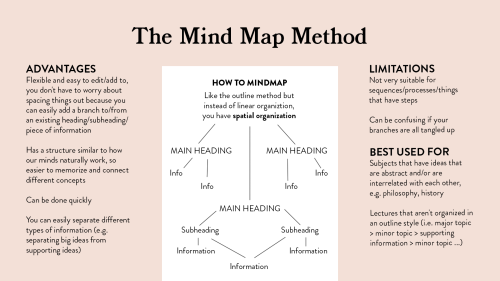

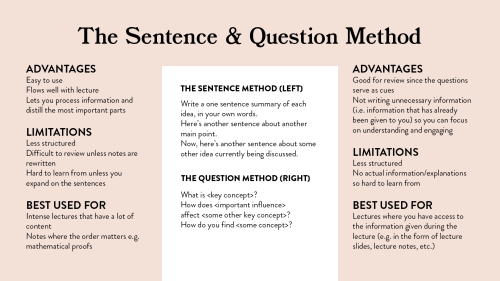


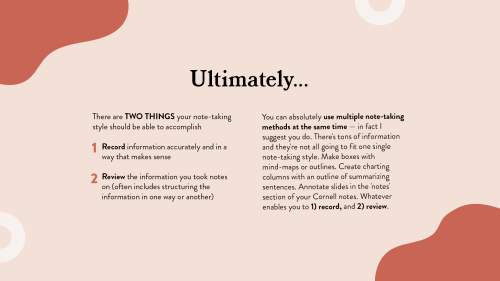
An Overview of Note-Taking Styles
Note-taking is one of the most essential skills a student should master. It allows you to record and review information to be used in the future. But what’s the best way to do so? Here’s an overview of note-taking styles that can help you maximize your learning!
More Posts from Swirlspill-study and Others
DEAR RESEARCHERS OF TUMBLR
You know what’s awesome? Research. You know what’s not awesome? Not being able to get access to research because it’s stuck behind a paywall and you don’t belong to an institution/your institution doesn’t subscribe to that particular journal.
FEAR NOT.
Here is a list of free, open access materials on a variety of subjects. Feel free to add if you like!
GO FORTH AND LEARN SHIT, MY FRIENDS.
Directory of Open Access Journals- A compendium of over 9000 journals from 133 countries, multilingual and multidisciplinary.
Directory of Open Access Books- Like the above, but for ebooks. Also multidisciplinary.
Ubiquity Press- Journals covering archaeology, comics scholarship, museum studies, psychology, history, international development, and more. Also publishes open access ebooks on a wide variety of subjects.
Europeana- Digital library about the history and culture of Europe.
Digital Public Library of America- American history, culture, economics, SO MUCH AMERICA.
Internet Archive- In addition to books, they have music and videos, too. Free! And legal! They also have the Wayback Machine, which lets you see webpages as they looked at a particular time.
College and Research Libraries- Library science and information studies. Because that’s what I do.
Library of Congress Digital Collections- American history and culture, historic newspapers, sound recordings, photographs, and a ton of other neat stuff.
LSE Digital Library- London history, women’s history.
Wiley Open Access- Science things! Neurology, medicine, chemistry, ecology, engineering, food science, biology, psychology, veterinary medicine.
SpringerOpen- Mainly STEM journals, looooong list.
Elsevier Open Access- Elsevier’s kind of the devil but you might as well take advantage of this. Mainly STEM, also a linguistics journal and a medical journal in Spanish.
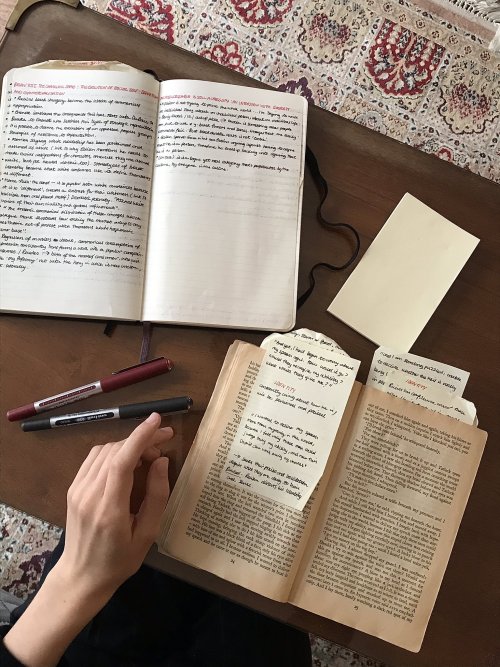
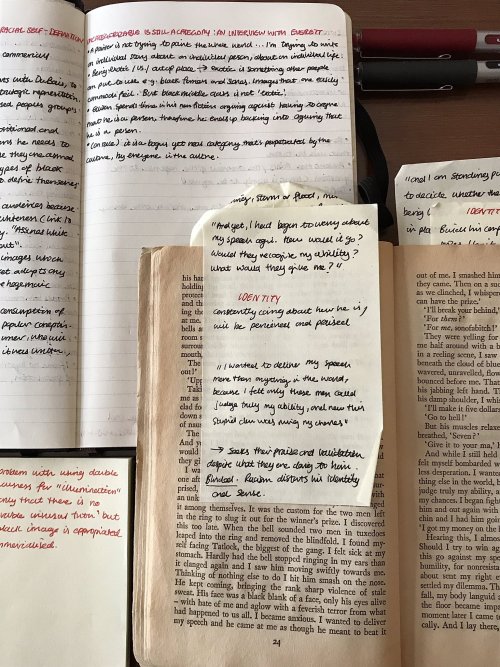
If this essay doesn’t kill me, nothing will. I’m currently grappling with the concept of connecting Du Bois’ concept of double consciousness with post-structuralism. I don’t know whether I’m being very clever or very stupid. (x)
Medical School Resources! (and other human biology,physiology,biochemistry-related resources)
Hi Everyone!
Update: I am now officially done with my second year! I know i’ve been MIA on here for a while now - but that’s only because I was drowning in textbooks and assignments! I will be writing a whole other post on what my second year in medical school was like - so watch out for that :)
I, for one, can not just rely on one method of learning. Meaning, I’ll jump from videos, to textbooks, to flashcards. In this post I’m going to list some of my holy grail youtube channels that have helped saved me.
1) Handwritten Tutorials
https://www.youtube.com/user/harpinmartin
Every video in this channel is short, but not so much that you feel like you’re missing out on information. Definitely one to save as a favourite!
2) Armando Hasudungan
https://www.youtube.com/user/armandohasudungan
The best thing about this channel is the fact that there are over 300 videos, covering a wide range of core topics in endocrinology, neurology, physiology and pharmacology. Another pro is the presentation of topics (otherwise considered snooze-worthy) in an artistic manner!
3) Speed Pharmacology
https://www.youtube.com/channel/UC-i2EBYXH6-GAglvuDIaufQ
Raise your hand if you’ve ever fallen asleep trying to read about the mechanism of action of opioids, their side effects and contraindications. I know I have. Fret not, for this youtube channel will introduce you to a world where pharmacology is actually interesting.
4) Wendy Riggs
https://www.youtube.com/user/wendogg1
Wendy Riggs is a very down-to-earth professor in Northern California, and she covers a wide range of topics in Anatomy, Physiology and General Biology.
5) Anatomy Zone
https://www.youtube.com/user/TheAnatomyZone
A better way to learn anatomy is to supplement your textbook information with videos from this channel. The explanations and visuals provided are absolute gold.
I hope you all find these channels as helpful as I did!


Hot tea is refreshing to me the same way rain is. They both make me feel like I have a fresh start. I’m late again, but Day 11 of the April challenge by @journa

idk just with school starting soon i thought it would be a good idea
For Studying
formulas & equations fill-in sheet
organic chemistry resources
essay checklist
exam checklist
template for summarizing academic articles
language practicing pack
writing/planning essay pack
correction sheets
assessment schedule
pomodoro technique
primary source analysis
exam study pack
overcoming the curve of forgetting
key people/character tracker
review pack
study schedule
vocabulary
For Sticky Notes
blank template
to-do strips
to-do strips, stickers, sticky note outline
different sticky note templates (water tracker, to-do, etc.)
For Note-Taking
blank dot grid pages
semi-cornell note taking outlines
novel note-taking
line/dotted note templates
several note outlines
unicorn notes!!
grey, pink, blue, yellow, & black grid paper
Planners
undated planner (365 days calendar, month calendar, & week calendar)
undated academic calendars (May 2016-May 2017)
weekly goals
timetable schedule
daily to-do list
4 to-do list variations (one of my faves!!)
daily planner (fave!)
weekly dotted planner
dotted monthly planner
b&w serious weekly planner
daily planner v.1 v.2 (fave!)
weekly planner
to-do list (hackers/x-files/spy?? theme)
essay planner
full year planner inserts
monthly overview
habit/goal trackers
weekly planner
simple daily planner
long-term goals
daily grid planner
project planner
100 days of productivity & to-do list
steven universe planning kit
plain planner bundle
summer calendars
blog planning kit
ultimate blog planner kit
habit tracker
20 to-do lists!
pastel daily printable
summer goals
august calendars
goal printables pack
Expenses
monthly budget
monthly in/out expenses and spendings (really useful tbh)
school supply list
finance tracker
Etc.
reading list
song list/music log
productivity log
folder inserts
font references!!! (also a fave)
insp. posters 2
self-care
water tracker
study break activity book
inspiring wallpapers!!
really good kit containing a planner, quote sheet, book tracker, & more!
class information
Other Masterposts for Printables!
studiyng’s
studie-s’s
studywithnerdyglasses’s

Very long but interesting chapter : depressive and bipolar disorders
(Don’t you love when your notes end right at the bottom of the page? I do!)
College Comparison and Application Checklists
Hi guys! As an obsessive spreadsheet maker, I am constantly using Excel for EVERYTHING, including when preparing to apply for college. I’ve just been told that, for once, the spreadsheets I made for comparing college options and organizing my application checklist are actually helpful, so I’m here to share them!
The first can be used for initially comparing and deciding which colleges you are interested in and the second can be used more as a checklist to see if everything has been submitted or completed.
To make things convenient, I’ve made them available in Google Sheets, from which you can copy to your own Google Drive or download as a Microsoft Excel file! They are also both editable so that you can add or remove categories and compare what’s important to you. Colleges are not one-size-fits-all, so feel free to edit the spreadsheets to cater to you. As a quick example, I’ve used Harvard to demonstrate what each category is for, but you can use it however you see fit. Since I personally have not looked into Harvard, the examples used are not the most thorough, but they should still provide a general idea.
**DISCLAIMER: I am still in high school and have not yet applied or gone to any colleges/universities. I am no expert on college admissions and do not know everything about finding and selecting the perfect college. Please keep this in mind. Any constructive feedback is welcome!
College Comparison Spreadsheet:
https://docs.google.com/spreadsheets/d/1AVSidBtOpGOHafgkHVeKYSL0ceyaSZvx2VNzIG3uZTc/edit?usp=sharing
College Application Checklist:
https://docs.google.com/spreadsheets/d/1ncT6dwddihoQOLsW17c6wZuXXqrp5F4hIqPWnop5M7M/edit?usp=sharing
To use, click on the link, go to “file”, then either click “make a copy” and save to your drive or click “download” and then whatever format you want. A guide to using each is below the cut. Happy college hunting and good luck!
Keep reading
i'll be having pharmacology next sem, any tips?
HI! :)
Pharmacology is the heart of pharmacy. You need to have a good memorisation skill but understanding it will be the key. Sad to say, there is no shortcut. You need to take a lot of your time to study it by heart.
In studying the drugs:
Study the normal mechanism of the body
Study the abnormal mechanism of the body
Compare the normal & abnormal mechanism of the body
Study how the drug works to correct the abnormal mechanism of the body
for example you are studying cardiovascular drugs: 1. study the normal physiology of the heart 2. study what happen when a person has a cardiovascular disease 3. study the difference between a normal heart & a heart with cardiovascular disease 4. study how cardiovascular drugs will correct the condition
Use flashcards, notecards & the likes
Use one side of the card and write the drug & other side with is mechanism of action
Use one side of the card and indicate its pharmacologic category & the other side with the list of drugs under that category
This are very handy & you can bring it anywhere you go. :)
Be creative, Use Mnemonics
In this way, the information will be easy to remember.
For example,
the non-specific beta blockers are NSTP (Nadolol, Sotalol, Timolol, Propranolol)
specific beta blockers are BEAM (Bisoprolol, Esmolol, Atenolol, Metoprolol)
beta blockers, mostly but not all the time, ends with -olol
angiotensin II receptor antagonist usually ends with -sartan (Losartan, Candesartan)
HMG-CoA reductase inhibitors usually ends with -statin (Simvastatin, Atorvastatin, Rosuvastatin)
ACE inhibitors usually ends with -pril (Captopril, Lisinopril)
Proton pump inhibitor - ends with -prazole (Pantoprazole, Esomeprazole)
H2 receptor blockers -ends with -tidine (Famotidine, Cimetidine)
Be productive during internships. Use that as an opportunity to be more familiar with the drugs.
The arrangement of medicine either in the community or hospital setting is mostly by their therapeutic category. Observe. Read. Write. Repeat. In this way you will be familiar with the drugs more.
Guide books & Apps
there are a lot of guide books like Pharmacopeia, but due to technology it is easily accessible to everyone today. :) There are several apps that are downloadable for free in the Apps Store & Google Play like…
Epocrates
Micromedex Drug Information
Monthly Prescribing Reference
The course itself is not easy but if you have the determination to study & to learn, nothing will come difficult. Good luck to you! I know you can do it. :)

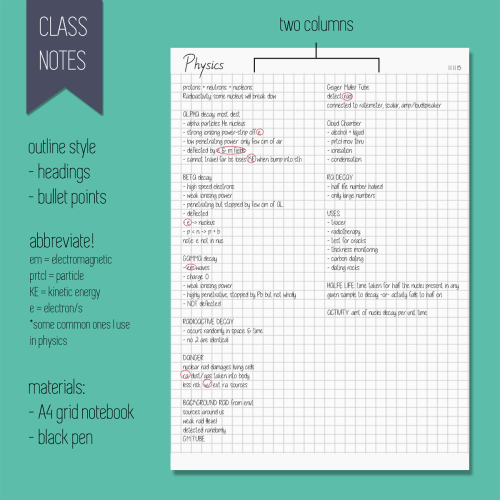
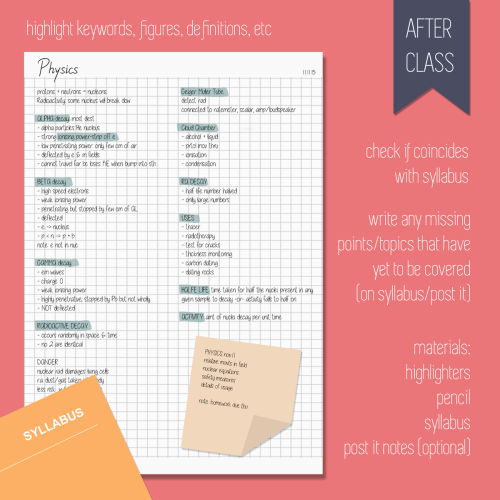
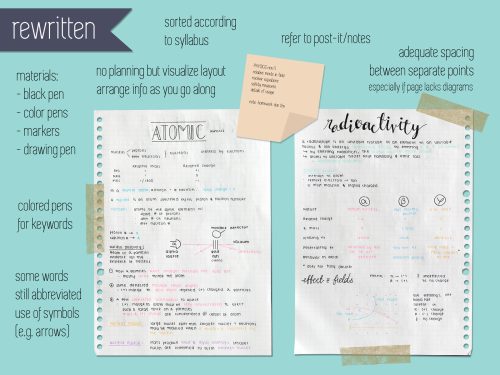
Note-Taking
Hey guys! So I’ve been receiving questions regarding my note-taking style and strategy for quite some time now but I believe I have never answered them in detail. The good news is, I finally decided to make a post about this (plus, I had fun making the graphics :D). Note that I am a visual learner, so my note-taking methods may not be effective for some of you, but I hope you can all learn something.
Class Notes
I only use one notebook for all my class notes, an A4 grid notebook whose pages I divide into two columns.
I use the outline method for in-class notes, which means I write information chronologically, in the order that they are taught. Some teachers do not have properly structured presentations/lessons (good thing my physics teacher does) so when in need, I use arrows to connect related information.
Abbreviations to me are one of the most important things to master when taking notes. I personally make them up as I go along. Some examples of abbreviations I use are:
w/c - which
w/ - with
cpd - compound
envt - environment
digenz - digestive enzyme
It might be confusing, but to me, knowing the context and part of speech are enough for all abbreviations to be comprehended.
Here’s an example: ‘Indonesia’s tsunami pre-warning system is made up of two types of components’ could become ‘Indo’s snmi pre-warn sys 2 type comp’.
After Class
The first thing I would do is highlight keywords and terminology (and sometimes formulas). For physics, since my teacher is relatively succinct, I don’t really highlight, but for humanities and biology, I look for words that would be expected by a mark scheme, words that are crucial to the understanding of each particular piece of information.
I would then check if the material taught coincides with the syllabus, and if not, note down any points that are missing or have yet to be taught. You could write these on a post it or on the syllabus itself, but I prefer to highlight the syllabus’ pdf file.
Rewritten Notes
My rewritten notes are arranged based on the order they appear in the syllabus unless there are pieces of information that are related to more than one topic.
I use a black pen for rewriting notes as well as colored pens to write keywords and terminology only. I know some people who write whole sentences in colored pens but to me that is ineffective; we all have our own learning styles. When making tables, I usually use different colors for different columns (see the table for different types of radiation above) which is most often the color I associate with each word. For example, water would be blue, ocean would be a darker shade, ice would be a lighter shade, and water vapor would be purple.
I still abbreviate words in my rewritten notes, but they’re not as condensed as the ones in my class notes. Another thing I find helpful is leaving a bit of space between separate points especially if the page doesn’t have a lot of diagrams. I can’t think linearly, so I can’t remember super lengthy bullet points.
I use mildliners and a drawing pen to make my diagrams (more of these in my biology notes) but I only start with pencil if it’s a complex diagram. I rarely highlight my rewritten notes, but even if I do, it’s usually only the headings and formulas.
I don’t have a rough draft for my notes, but I try to visualize the layout. I try to alternate between words and pictures/diagrams so that when I’m sitting for an exam, all I have to do is imagine that I’m looking at that page and I can remember where everything is.
Well, that’s all from me. I hope that this information could be of some use to every single one of you. Don’t hesitate to ask me questions if you’re confused about note-taking or any other problems you might have :)
study less study smart
I decided to share my notes taken from this amazing 1 hour Youtube lecture by Marty Lobdell. i really liked him and his tips, i think they are super effective and cover a lot of situations! i highly recommend it!!!!! wow
but here are the tips and examples Marty mentions, so if you don’t have the time to go through the full hour, you can just scroll down. hope this helps somebody!
Break your study time in chunks with breaks
most students lose focus at 25 minutes
it’s a mistake to keep going once you do, since you won’t actually learn anything and you’ll hate every minute of it
so when you start losing focus take a 5 minute break
do something nice like talking to someone or listening to music
it’s something you practice so with time you’ll be able to work for more time without losing focus
in the end of the study session have a big reward you look forward to
Create a study area
environment highly affects the way you act. Bedrooms are for sleeping, kitchens for eating: you’ll feel sleepy in your bedroom and hungry in the kitchen. So if you have a study area, it’ll be easier to start studying and staying focused.
study in a specific room like an office or school library if you can
if you have to study in your bedroom use a specific object you only use for studying: a lamp/desk. Make it a no-distraction, away from your bed, blank walls area.
The more active the learning, the better
80% active learning 20% passive
ask yourself: is it a concept or a fact?
learning a concept: understand/grasp/know it
put it into your own words
really think about the meaning of it
relate it with something you already know
teach somebody else. Recapitulate what you’ve learned. Talk out loud even if you don’t have anyone to teach - talk alone. Or at anyone that listens.
learning a fact: memorize it
use mnemonics
Acronyms (e.g. colours of the rainbow RoyGBiv – red orange yellow green blue indigo violet)
Coined sayings - anything popular or sayings you’ve heard since you were a child.
Interacting images – work even better if they’re weird. Creative associations make you never forget specific details. (e.g. 1 gram of fat has 9 calories: picture a fat cat – each cat has 9 lives)
any time 2 things are highly similar but not the same you will get maximal interference!! USE mnemonics!! (e.g. afferent vs efferent neurons: SAME - Sensory Afferent Motor Efferent)
Be a part of study groups
others can help you in ways you never thought before
Recognizing VS remembering
never confuse the two
while reviewing a chapter you may recognize concepts but not actually know them
and when you get to the test you won’t be able to remember any of it
so quiz yourself without looking at it
or stop in a page of your notes/textbook and ask yourself what is the concept immediately after and before it
Get your REM Sleep
get ~8 hours so you don’t undo your studying
this is how your brain stores permanent memories
without it you’re ability to remember seriously decreases
most people don’t even begin to take the advice but it’s simple: sleep better. Do better.
There’s 162 hours in a week. There is time.
reflect on what you are doing with your time and what activities you have to prioritize to succed as a student
Taking notes is vital.
right after the class take 5 minutes to expand everything you’ve jotted down, give it depth.
NOT hours later. You won’t remember half the things you wrote down.
Ask your questions to class mates and teachers.
teachers want you to succeed and it’s more than ok to ask your question in the teacher’s office or in the next class
How to use a textbook: SQ3R technique
Survey Question Read Recite Review
Survey: skim through the entire chapter in a couple of minutes.
Raise questions: e.g. what is osmosis? What is this graphic about? What is a prototype?
it causes you to look for answers and you’ll find the information better once you actually study it after. If you intend to find something you learn it better.
Start studying for tests early.
don’t undo yourself. You should only be reviewing the days before the test. don’t leave it till the last minute!
(don’t just scroll through this!!!! really think about these methods and how you can actually implement them so you can benefit from them!!! these actually work but only if you put them into practice boo good luck!)
-
 kavya1398 liked this · 2 weeks ago
kavya1398 liked this · 2 weeks ago -
 hauntedshrimp liked this · 3 weeks ago
hauntedshrimp liked this · 3 weeks ago -
 modernlearner liked this · 3 weeks ago
modernlearner liked this · 3 weeks ago -
 dxddyrxbyn liked this · 4 weeks ago
dxddyrxbyn liked this · 4 weeks ago -
 mnemotopia liked this · 1 month ago
mnemotopia liked this · 1 month ago -
 studyforalittle reblogged this · 1 month ago
studyforalittle reblogged this · 1 month ago -
 floatingrose00 reblogged this · 1 month ago
floatingrose00 reblogged this · 1 month ago -
 therisendamned liked this · 1 month ago
therisendamned liked this · 1 month ago -
 naistudylab reblogged this · 1 month ago
naistudylab reblogged this · 1 month ago -
 invest-em reblogged this · 1 month ago
invest-em reblogged this · 1 month ago -
 latilya89 reblogged this · 1 month ago
latilya89 reblogged this · 1 month ago -
 aneur0sis reblogged this · 2 months ago
aneur0sis reblogged this · 2 months ago -
 aneur0sis liked this · 2 months ago
aneur0sis liked this · 2 months ago -
 loompy512 reblogged this · 2 months ago
loompy512 reblogged this · 2 months ago -
 jaya-papaiya liked this · 2 months ago
jaya-papaiya liked this · 2 months ago -
 aw1e liked this · 2 months ago
aw1e liked this · 2 months ago -
 dogtormikhael liked this · 2 months ago
dogtormikhael liked this · 2 months ago -
 raiarawr liked this · 3 months ago
raiarawr liked this · 3 months ago -
 beatcroc liked this · 3 months ago
beatcroc liked this · 3 months ago -
 sisaloofafump liked this · 3 months ago
sisaloofafump liked this · 3 months ago -
 antioch-actius reblogged this · 3 months ago
antioch-actius reblogged this · 3 months ago -
 twenty7toasts liked this · 3 months ago
twenty7toasts liked this · 3 months ago -
 soggyfrenchfryeater liked this · 3 months ago
soggyfrenchfryeater liked this · 3 months ago -
 kuihmilk liked this · 3 months ago
kuihmilk liked this · 3 months ago -
 theneptunianmoon liked this · 4 months ago
theneptunianmoon liked this · 4 months ago -
 apricotsnow liked this · 4 months ago
apricotsnow liked this · 4 months ago -
 casualtrashwerewolf liked this · 4 months ago
casualtrashwerewolf liked this · 4 months ago -
 twinheroes liked this · 4 months ago
twinheroes liked this · 4 months ago -
 tiniestapocalypse reblogged this · 4 months ago
tiniestapocalypse reblogged this · 4 months ago -
 consciousintention liked this · 4 months ago
consciousintention liked this · 4 months ago -
 moderndayhamlet reblogged this · 4 months ago
moderndayhamlet reblogged this · 4 months ago -
 a-slicedmango liked this · 4 months ago
a-slicedmango liked this · 4 months ago -
 bobrisky liked this · 4 months ago
bobrisky liked this · 4 months ago -
 worldthroughmyeyes liked this · 4 months ago
worldthroughmyeyes liked this · 4 months ago -
 reikaryuu-blog liked this · 5 months ago
reikaryuu-blog liked this · 5 months ago -
 clubjukes liked this · 5 months ago
clubjukes liked this · 5 months ago -
 articalmage reblogged this · 5 months ago
articalmage reblogged this · 5 months ago -
 theneherss liked this · 5 months ago
theneherss liked this · 5 months ago -
 the-better-phoenix256 liked this · 5 months ago
the-better-phoenix256 liked this · 5 months ago -
 charmingbluelove liked this · 5 months ago
charmingbluelove liked this · 5 months ago -
 pretty-bish3 reblogged this · 5 months ago
pretty-bish3 reblogged this · 5 months ago -
 pretty-bish3 liked this · 5 months ago
pretty-bish3 liked this · 5 months ago -
 manchesther-studies reblogged this · 5 months ago
manchesther-studies reblogged this · 5 months ago -
 ourblindhearts liked this · 5 months ago
ourblindhearts liked this · 5 months ago -
 making-moriartea liked this · 5 months ago
making-moriartea liked this · 5 months ago -
 dogpoem liked this · 5 months ago
dogpoem liked this · 5 months ago -
 ilporro liked this · 5 months ago
ilporro liked this · 5 months ago
a study blog for collected references, advice, and inspiration
267 posts